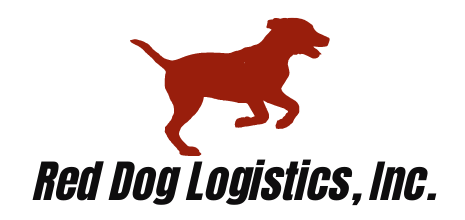In the freight industry, there are a plethora of options when it comes to organizing and managing supply chains. Some distributors choose to facilitate this portion of their operation in-house, which grants ultimate control. However, this not only takes tremendously diligent effort to upkeep your supply chain and freight optics, if knowledge and experience are not at hand when dealing with freight management, companies can stand to lose customers, inventory, and money. The remaining shippers rely on third-party logistics firms (3PLs) to oversee and assist in the management of your shipping demands. In the ocean of 3PL services in the United States, there are major discrepancies from firm to firm. Larger, more established firms are able to allocate resources to a shipper who requires assistance. This is great news for large-scale shippers, as they are more likely to have assets assigned to better facilitate any complications they experience. However, for shippers not pushing out high volumes of freight, that is not the case. Shippers who fall below the threshold of being the biggest money makers in the US don’t have the luxury of working with the 100+ year old 3PLs who work exclusively with megashippers. Similarly, 3PLs face comparable challenges. So what sets a mid-level 3PL like Red Dog Logistics apart from megabrokers?
For starters, megabrokers can grow too large in their reach to sufficiently provide the customer support and vital relationship-oriented trust that a firm like Red Dog has the capability of producing. At the end of the day, a large firm sees clients as a name on a balance sheet. For Red Dog, the relationships between our team and clients is absolutely crucial. It is not only the ability to put a name to a face, but building a report with clients constructs a level of dependability and visibility that megabrokers simply cannot maintain. The lifeblood of the freight industry is the people- and to not adhere to that principle is callous and abandons the accountability and trust that a relationship would administer. With this capability and devotion to customer relationships, the attention to detail that Red Dog is able to contribute to each and every client is unmatched by large 3PLs. Whether you’re shipping 10or 500 loads per month, shippers receive the same level of priority and attention.
Second, the aforementioned focus on relationships breeds many benefits. Each and every member of our team becomes accustomed to your individual industry and operation. Working with many shippers in a plethora of various industries not only provides us with predetermined insight into what you face as a shipper, but closely working alongside shippers quickly familiarizes Red Dog to become experts in our clients’ operation. Context and understanding when initiating and maintaining a partnership is paramount. To a megabroker, this is simply not possible given the sheer volume of firms they do business with. After all, working with multiple breweries is able to provide more expertise and insight than working with just one large distributor.
Conversely, as many differences as there are between megabrokers and a 3PL like Red Dog Logistics, there are bound to be similarities. For instance, 3PLs necessitate a healthy reliance on technology in every aspect available. Red Dog implements a proprietary rating technology that supports lower rates on freight across the board. This system is predicated upon thousands and thousands of historical data points that all aim to get shippers the rates they should be paying. This not only provides the best rates possible, but also provides the same information and knowledge as the industry’s leading brokers.
A large firm is bound to have some semblance of customer support. That being said, many of these firms outsource to programs that are anything but supportive. Being on hold for hours or speaking to a computer are NOT viable options for efficient customer support. Smaller firms like Red Dog are able to utilize an in-house IT & customer support team, which provide assistance from actual people who are sensitive to your issues. Unfortunately, issues are sure to arise at one point or another in the management of your supply chain, and talking to an automated system to resolve complications is not only inefficient, but inconsiderate.
Over half of 3PLs fail within their first year of business. What this suggests is that if you get the opportunity to prove your value to a shipper, you better thrive. There are many reasons that younger 3PLs don’t deliver on their word, among them being empty promises. As distasteful as it is, the inevitability of complications is a certainty. What is able to thwart the dismay of these complications is the manner in which it is handled. If 3PLs don’t operate with integrity and transparency, there is no chance they will find sustained success in the industry. While megabrokers are able to throw money at a problem to make it go away (short term), firms like Red Dog practice thorough and steadfast problem solving skills. When complications cannot be settled with funds alone, megabrokers simply aren’t able to match the customer support that Red Dog is. This all stems from the drive to construct relationships that will aid in the resolution of any issue.
In conclusion, the difference between megabrokers and mid-level 3PLs like Red Dog is palpable. A smaller-scale logistics firm has the ability to connect with customers on a personal level, while providing superior relationship capabilities without sacrificing service quality. Utilizing the services of a mid-level 3PL might be more than a good choice- it can prove to be the best choice.
https://www.linkedin.com/pulse/benefits-working-mid-level-3pls-vs-megabrokers-/
